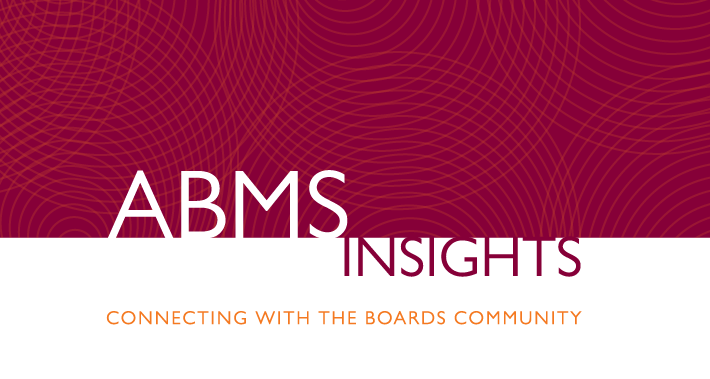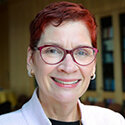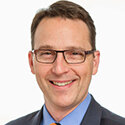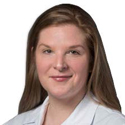
While COVID-19 highlighted extreme professionalism exhibited by clinicians and other health care workers, it also exposed frailties in the social contract between the medical profession and the public. Speakers at ABMS Conference 2020 – Virtual, held this past September, discussed opportunities to strengthen both the social contract and health care environment to both support and foster professionalism.

The medical profession’s response to the COVID-19 pandemic clearly elevated the public’s opinion of the remarkable work that physicians do, sometimes at great personal sacrifice, noted Catherine Lucey, MD, Executive Vice Dean and Vice Dean for Education at the UCSF School of Medicine. Meanwhile, individuals inside and outside of the House of Medicine have been questioning whether this “extreme professionalism in action” is a sign of exemplary individuals or a symptom of dysfunctional health care systems, Dr. Lucey noted. The reality is that institutions may be guilty of exploiting the professionalism of their health care workers.
“When the public and profession aren’t working equally at the social contract, particularly during a pandemic, the profession steps in to cover the problems that have been there all along but weren’t nearly as exposed,” stated Robert Phillips, MD, MSPH, Executive Director of the American Board of Family Medicine (ABFM) Foundation’s Center for Professionalism and Value in Heath Care. Pressing the profession to work harder using quality measures and financial payment models that do not align with its values of professionalism is contributing to the fraying of the social contract. “The insidious effects these measures have had on professionalism are quite toxic and one of the main contributors to physician burnout,” Dr. Phillips added.
It may be time to revisit the social contract to ensure that it reflects the medical profession’s shared set of values, said Christie Morgan, MD, MS, a Senior Staff Surgeon at the Henry Ford Health System and Chair of the American Board of Medical Specialties (ABMS) Professionalism Task Force. Medicine has seen numerous changes in the past few decades that have directly impacted how physicians view themselves and their role in medicine and the community. It may be beneficial to revise the social contract to reflect who we are and how we live today, Dr. Morgan said.
Physicians’ behaviors are driven by the social contract, Dr. Lucey said. “It should be an ethical and moral shared set of understanding of how we prepare physicians to be at their very best in caring for patients when they’re often at their very worst,” she added. Professionalism is a core competency that the Accreditation Council for Graduate Medical Education (ACGME) and ABMS expect trainees to master during residency and sustain during their decades long career, Dr. Lucey noted. How physicians demonstrate professional behaviors is highly impacted by the environment in which they learn and work.
In order for the ABMS Member Boards to evaluate, reward, and sustain professionalism, they should advocate for a renewed social contract, in which “we should not settle for self-regulation and economic success in exchange for duty,” Dr. Lucey said. All the stakeholders – health institutions, organizations, certifying boards, government, and communities – should collaborate to build health care systems that support physicians and society. In this new social contract, heroism is the rarity and everyday professionalism is the norm, she said. COVID-19 can serve as a guide for what this looks like. For example, pockets of institutions supported their physicians during the pandemic by voluntarily limiting the volume of patients allowed in to protect the health and bandwidth of physicians and other health care workers, even though that restriction represented a financial economic loss for many. They delivered meals, provided spiritual and psychological support for those witnessing an incredible amount of suffering and death, and arranged childcare and hoteling to make home life a little easier while work life was devastatingly difficult, Dr. Lucey said.
A return to core professionalism requires that physicians be trained with skills to address everyday threats to professionalism, such as conflicts of interest, overwork, and sometimes pandemics, she said. Essential skills include conflict resolution and de-escalation in the face of an angry patient, respectful boundaries, self-care, and self-awareness. “Although ABMS Member Boards evaluate individuals and ACGME develops training programs, they must work together to develop strategies that not only look at the individual but look at the systems,” Dr. Lucey said. When a program director attests that a resident is prepared for board certification, he or she also should be attesting that the health system embraces systems improvement, optimizes communication, facilitates continuity of care, and so on.

Dr. Phillips concurred. “The Member Boards have typically focused on certifying physicians on their individual competencies and professional behaviors,” he said. “While that is still relevant, there is a role for the Member Boards to support physicians by looking at how the environment they’re in supports them.” For example, Member Boards can support physicians through non-financial reward, promote positive professionalism, and identify the kinds of behaviors that all physicians should exemplify.
Member Boards can advocate for quality improvement initiatives that assess systems issues, such as team-based care, organizational culture, and training programs, Dr. Phillips said. ABFM conducts a survey of all family physicians who have been out of training for three years. The board compiles the feedback in a report card that it gives to each training program and then works with the training programs to improve them. ABFM also is looking at how to use claims data to assess high value functions of primary care (e.g., continuity and comprehensiveness) to determine whether a health system is supporting those functions.
Member Boards can make continuous learning meaningful and part of everyday practice, he said. To that end, in 2017 ABFM introduced its Continuous Knowledge Self-Assessment tool, known as CKSA, designed to help family physicians identify knowledge gaps and subsequent learning. Other Member Boards have transitioned to formative assessments led by the American Board of Anesthesiology’s MOCA Minute®.
ABFM has developed four measures that it believes are core to primary care and will support professionalism and quality care in health care systems, Dr. Phillips noted. Most of them are not routinely measured in the 83 quality measures that comprise the Center for Medicare & Medicaid Services’ (CMS’) Quality Payment Program for primary care, but many are being used or tested in other countries. ABFM research has shown that better continuity of care is associated with a reduction in total health care costs. Continuity is measured outside of the United States and ABFM was able to convince CMS to endorse the measure’s use in its PRIME Registry. CMS also is considering ABFM’s patient-centered primary care measure. Currently, the board is testing a measure for comprehensiveness for inclusion in its’ registry. ABFM is looking to develop a low-value care measure that looks at the downstream effects of cost, utilization, and outcomes that primary care can have a role in preventing and/or protecting. “We think it’s important for certifying boards to understand what the core measures are, how they’re applied, and how we can defend them in policy,” he added.
“The Member Boards have a role that is not typical of what they have done in years past, but it’s something we need to step into if we’re going to fulfill the responsibility in the social contract because that responsibility extends beyond competency,” Dr. Phillips said.

Meanwhile, the ABMS Professionalism Task Force is focusing on how to promote professionalism within the Member Board structure. There is a role for Member Boards to foster and improve behaviors that lead to professionalism, Dr. Morgan said. Continuing certification activities could assess how well physicians navigate team relationships or conflict resolution. Physicians could participate in self-directed modules to enhance skills that are meaningful, and not burdensome, to them. “If the only praise physicians get is for the amount of relative value units they generate, then we’re sending the wrong message and rewarding the wrong thing,” she said. “In doing so, we’re negating those behaviors we want to increase.”
Dr. Morgan said that many physicians in her generation became board certified because they needed a job. “We need to reframe that thinking so that people choose to get board certified because they want to be the best of the best, they want to be held to a higher standard, and they want to partner with their Member Boards,” she said.
Promoting professionalism will require Member Boards to have conversations about the value of board certification with physicians because those conversations were somehow lost in translation from the older generation to the younger ones, Dr. Morgan stated. To that end, Member Boards should be flexible and partner with training programs, specialty societies, advocacy societies, and foundations, such as the ABFM Foundation’s Center for Professionalism and Value in Heath Care, that are pioneering this work so that the medical profession moves forward in the same direction.
© 2020, American Board of Medical Specialties® (ABMS®).
